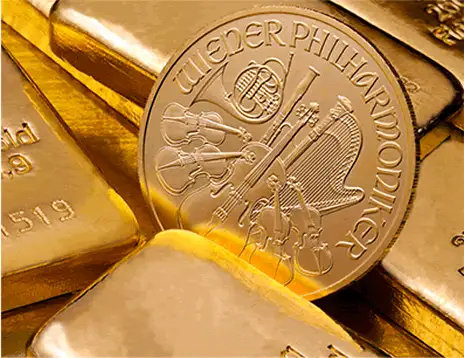
When it comes to selling gold, not all gold is created equal. Whether it’s the sentimental value of an engagement ring or the cold, hard security of bullion, gold buyers have different motivations depending on the type of gold brought to them. But what types of gold are most sought after by buyers, and what should sellers know before parting with their prized possessions?
Gold Jewellery: A Sentimental Sale
For many sellers, the decision to part with gold jewellery is a tough one. Engagement rings, wedding bands, or heirloom necklaces hold more than just monetary value—they’re symbols of love, family, and personal history. But when financial pressures mount, or when decluttering leads to difficult decisions, that sentimental attachment can give way to a need for quick cash.
Gold buyers know this. They understand that jewellery often carries emotional weight, but they’re also focused on the material. For them, it’s all about the karat and weight of the gold. The intricate designs or the memories attached don’t necessarily translate to higher payouts. In fact, buyers will usually deduct the value of any gemstones or craftsmanship, meaning sellers may get less than they anticipated.
That said, gold jewellery—particularly pieces made from higher-purity gold like 18k or 24k—remains in demand. Buyers can melt it down, repurpose it, or sell it to other customers looking for second-hand bargains. The market for jewellery is always fluctuating, with trends, fashions, and even cultural events influencing the price buyers are willing to pay. Yet, gold buyers ultimately value these items for their raw material.
Bullion: The Pure Play
When it comes to making the most money from selling gold, bullion is king. Gold buyers love bullion for its simplicity. It’s pure gold, without the frills of design, gemstones, or sentimental value. Whether it’s in the form of bars, coins, or ingots, bullion represents a straightforward investment.
Because bullion is valued solely on weight and purity, it typically fetches a higher price compared to jewellery. Buyers know exactly what they’re getting, and sellers can usually count on a transparent valuation process. Unlike gold jewellery, where market demand and craftsmanship can muddy the waters, bullion’s worth is directly tied to the current spot price of gold. It’s a liquid asset, meaning buyers are often willing to pay top dollar for it, knowing they can easily sell it on or melt it down.
If you’re looking to sell gold and maximize your return, bullion is your best bet. Whether you’ve been holding onto coins from an investment portfolio or gold bars tucked away for a rainy day, buyers are eager to snatch up these high-value items. It’s as close to a guaranteed sale as you can get in the gold world.
Coins: Sentiment Meets Investment
Gold coins occupy an interesting middle ground. On one hand, they’re often viewed as collectibles or investments, much like bullion. But on the other hand, they can carry significant historical or sentimental value, particularly if they’re rare or part of a special collection. Gold buyers recognize this dual appeal and will often pay more for rare or in-demand coins.
However, much like with jewellery, the actual value of gold coins depends on more than just the gold content. Collectors’ coins, for instance, may be worth far more than their weight in gold due to rarity, condition, or historical significance. For sellers, it’s important to understand the unique value of their coins before approaching a gold buyer. Doing a bit of research could mean the difference between a standard payout and a small fortune.
What Do Gold Buyers Really Want?
So, what types of gold do buyers truly desire? Ultimately, it comes down to purity, weight, and liquidity. Bullion is the clear favorite, offering pure gold and easy resale value. Coins, especially rare ones, are also highly sought after. Jewellrry, while still valuable, often comes with complications, as buyers are primarily interested in the gold content and not the emotional or aesthetic value.
For sellers, understanding what gold buyers prioritize can make a huge difference in how much money you walk away with. If you’re sitting on bullion or coins, you’re in a strong position. If you’re selling jewelry, it’s important to be realistic about the value—those sentimental earrings might not fetch as much as you’d hope, but their gold content still makes them worth selling, especially if you’re dealing with a financial crunch.
